For IT departments and IT decision-makers (ITDMs), AI is a new path to professional prominence, power, and prosperity.
It starts at the top. CEOs are optimistic about AI’s potential. They’re increasing AI-related budgets, predicting returns as soon as 2025, and peppering typically staid earnings calls with AI enthusiasm. CIOs feel it, too. New research from Salesforce finds that 84% think “AI will be as significant to businesses as the internet,” and 66% expect ROI from AI investments.
It’s no wonder, then, that CEOs are increasingly placing CIOs—as de-facto “Chief AI Officers”—in their close orbit. “Artificial intelligence is pushing chief information officers closer to the corner office than ever before,” writes WSJ reporter Belle Lin. She analyzes Deloitte research that shows 41% of CIOs reported directly to their CEO in 2015, rising to 52% in 2023. This number leapt to 63% in 2024. Foundry’s State of the CIO survey sheds more light on this trend, finding that “79% of IT say that CIOs have a strong educational partnership with the CEO/board of directors.”
AI covers a huge surface area at many of these companies. Rather than limiting AI deployment to technical teams and use cases —e.g., coding, threat detection, etc.—you’ll now find AI in customer service, HR, sales, accounting, operations, marketing, and more. The wide internal userbase is driven, in large part, by Generative AI’s ability to produce content easily and at a faster clip, a need shared by most of these functions.
IT teams do the hard work of setting up AI systems throughout their organizations. They are the critical link between the C-suite’s AI vision and the company’s execution. Being instrumental in realizing company priorities should be great for their careers. So, is it?
Findings
1E worked with YouGov Plc. to survey 500 US-based IT decision-makers (ITDMs). For both teams and individual IT leaders, IT’s critical AI role can have a profound effect on their influence, reputation, power, responsibilities, and income.
Here are the findings in full.
AI boosts IT department status. Fifty-nine percent of all IT decision-makers surveyed agree that the rise of AI has elevated their IT department’s status within their company. More than a quarter (26%) strongly agree, whereas only 1 in 10 (10%) strongly disagree.
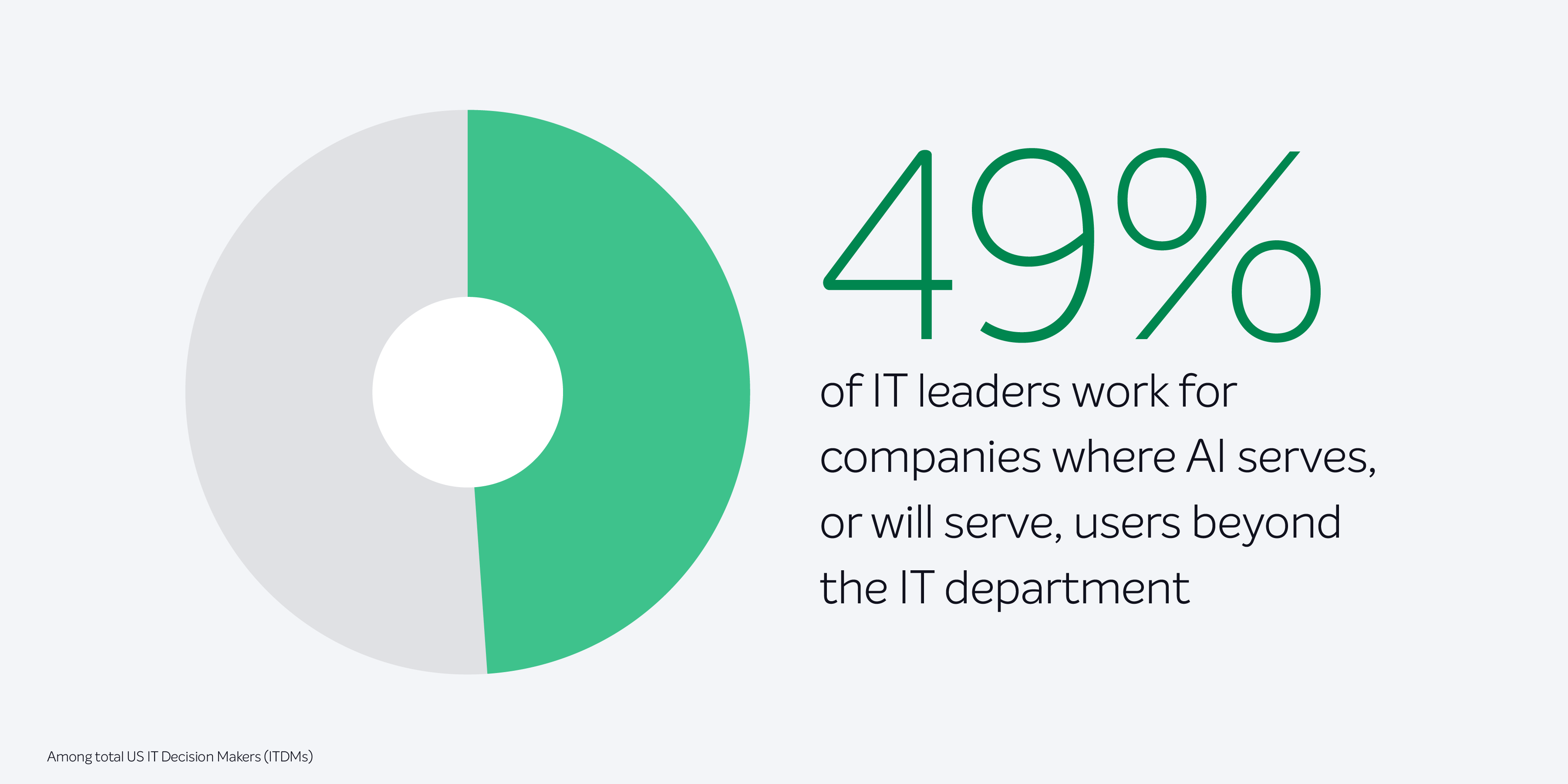
Click on the image to enlarge.
Of all IT decision-makers surveyed, 49% work for companies where AI serves, or will serve, users beyond the IT department, 20% work for companies where AI only serves users within the IT department, 26% work for companies that have no plans to use AI anywhere, and 4% don’t know.
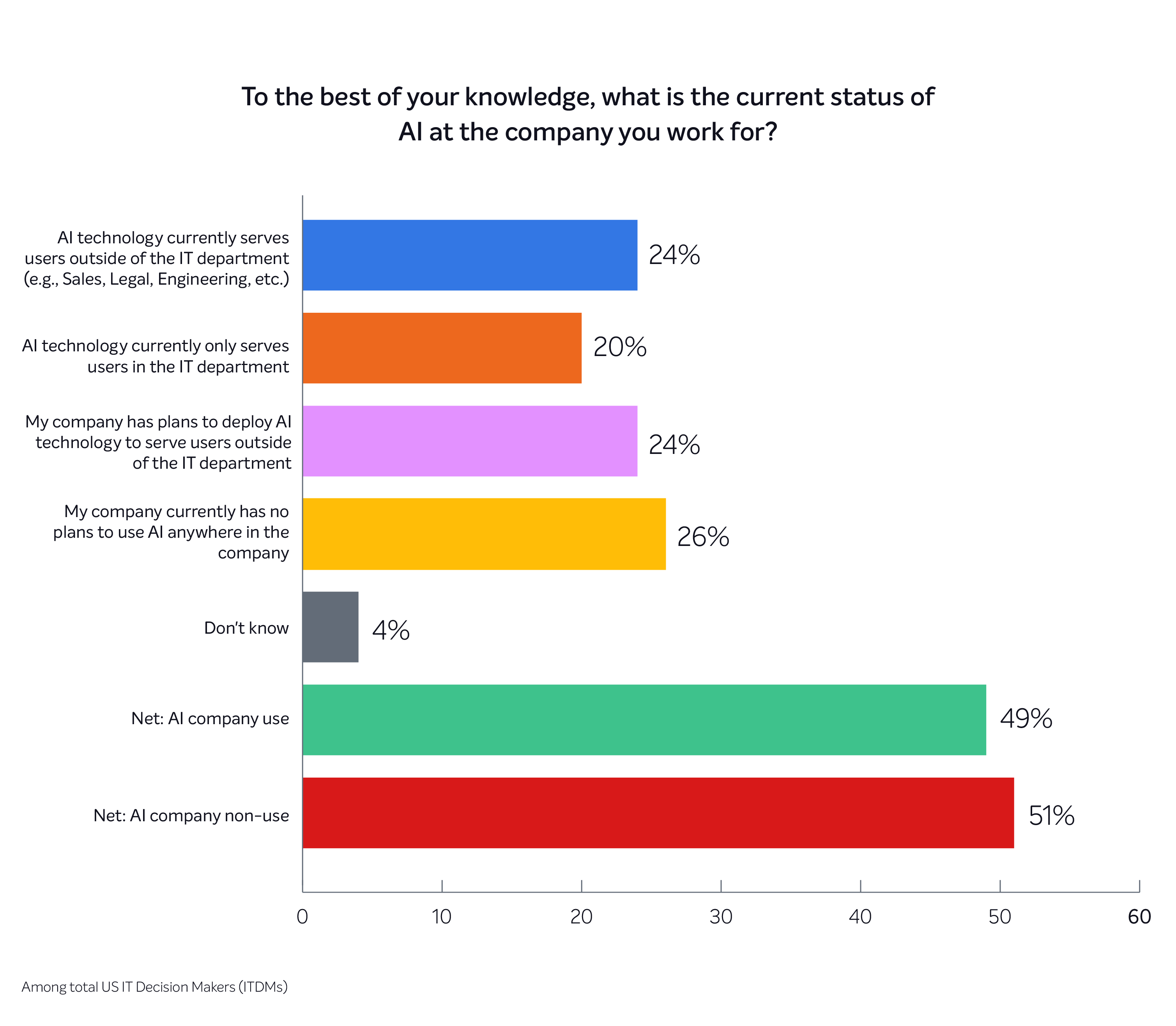
Click on the image to enlarge.
The 244 respondents who work for companies where AI serves, or will serve, users beyond the IT department answered three additional questions.
IT departments play highly strategic roles in AI adoption. Ninety-five percent of respondents report that their IT department has engaged in at least one strategic AI activity, including consulting on AI strategy across departments (41%), advising executives on AI (39%), and developing AI policies and guidelines (33%).
Seventy-nine percent have engaged in two or more strategic activities; 61% in three or more; and 40% in four or more.
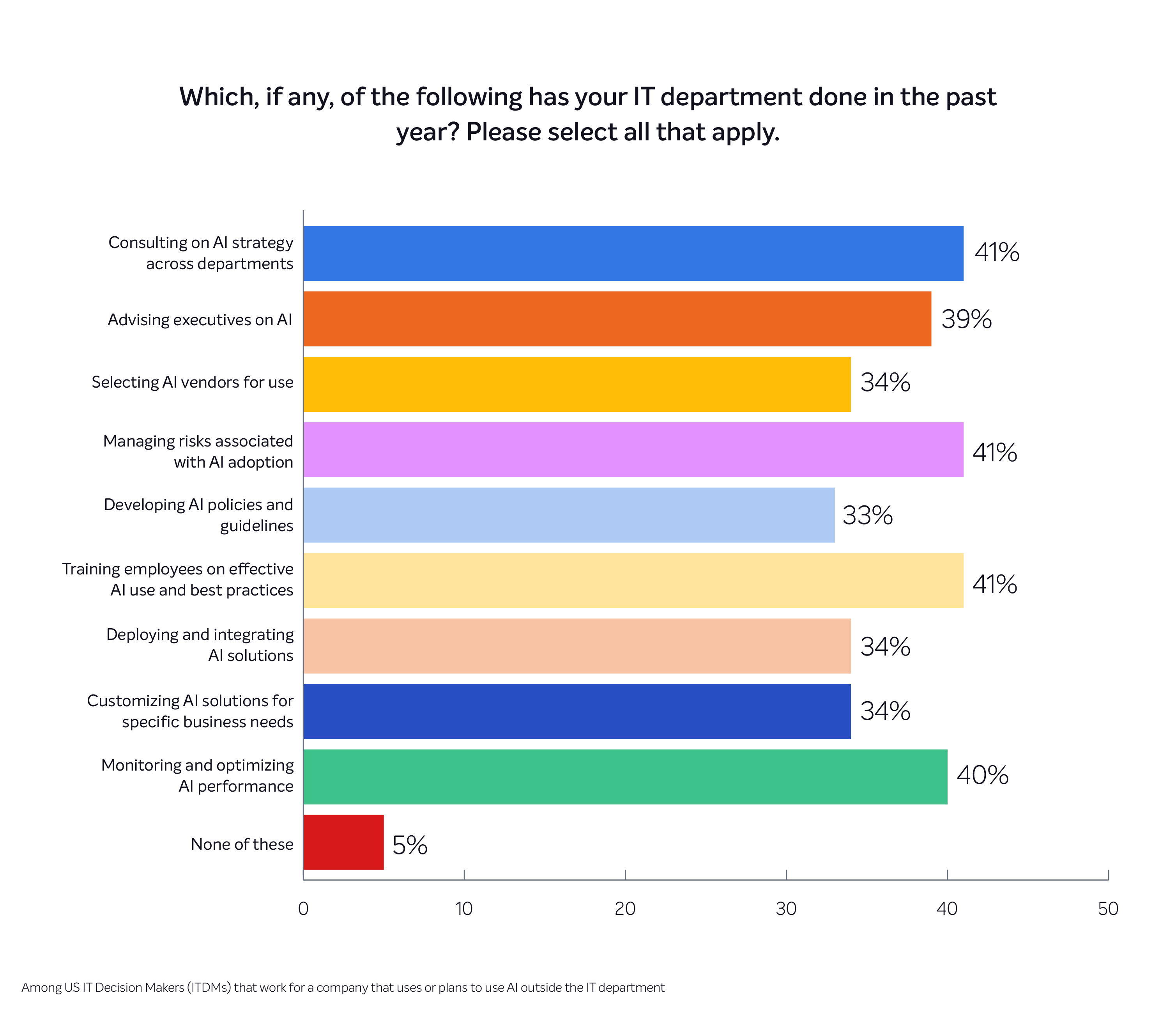
Click on the image to enlarge.
AI makes IT departments more influential and aligns them to key business priorities. Eighty-eight percent report that AI adoption within their companies boosts the perception of IT. More than half (53%) say AI adoption has positively impacted the perception of IT in two or more ways, and 22% selected three or more ways.
Companies recognize the direct financial impact of IT's role in AI adoption. Nearly half of respondents (46%) say “IT is increasingly recognized as a strategic partner in driving business growth”; 40% selected “IT is increasingly valued for its role in generating significant cost savings”; 23% agree with both statements. And 46% of ITDMs think "IT is increasingly associated with contributing to overall business outcomes." Feels good to be seen!
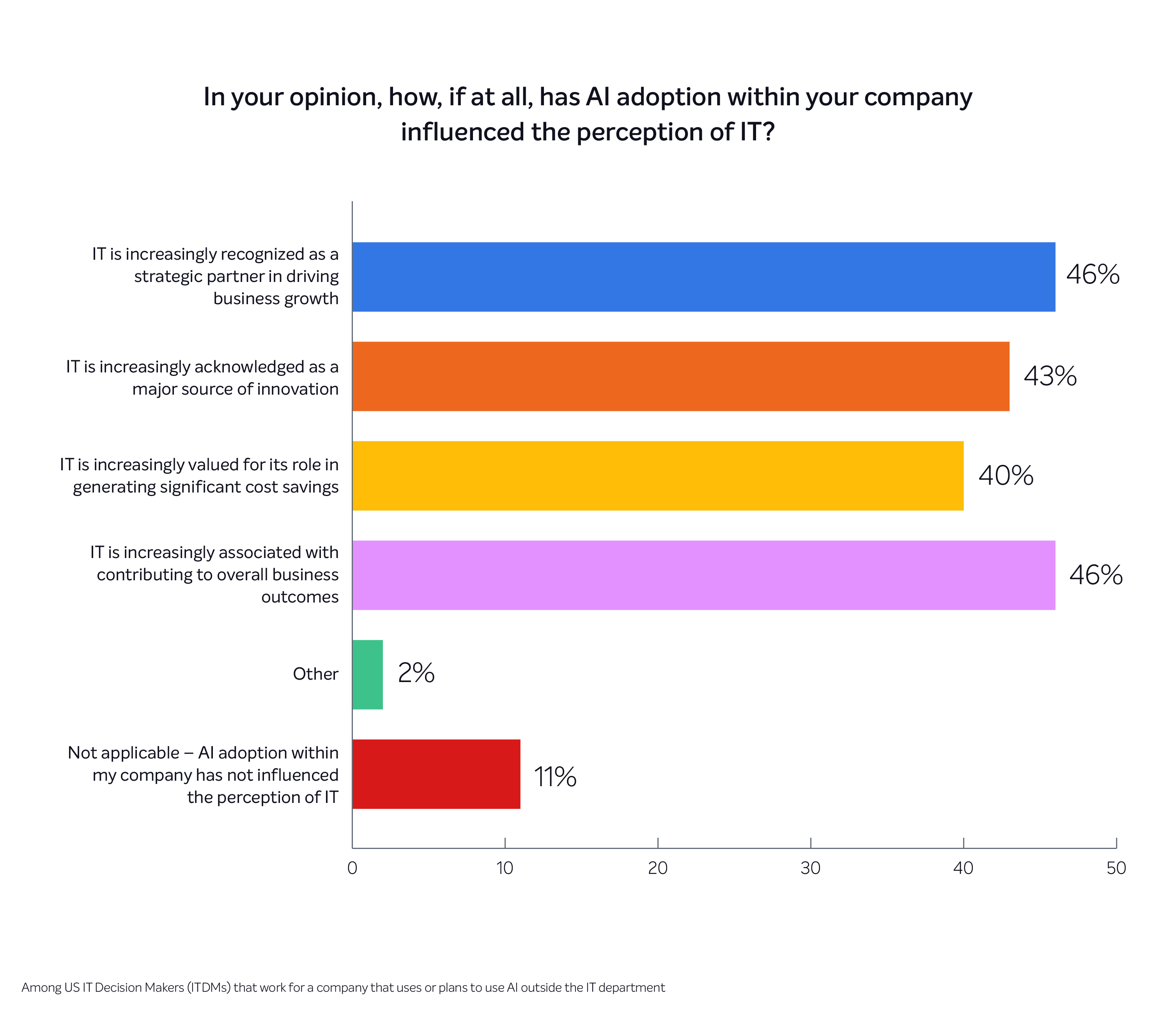
Click on the image to enlarge.
AI adoption is career capital. From bigger budgets to higher job satisfaction, 88% of ITDMs at AI-embracing companies report that their involvement in AI adoption has benefited them professionally in at least one way. More than one-quarter (26%) have received a raise or promotion based on their AI work, 28% have expanded their team, and 26% have seen their budgets grow. AI adoption has made an even stronger financial impact on the fortunate 7% of respondents who have received a raise or promotion and a bigger budget.
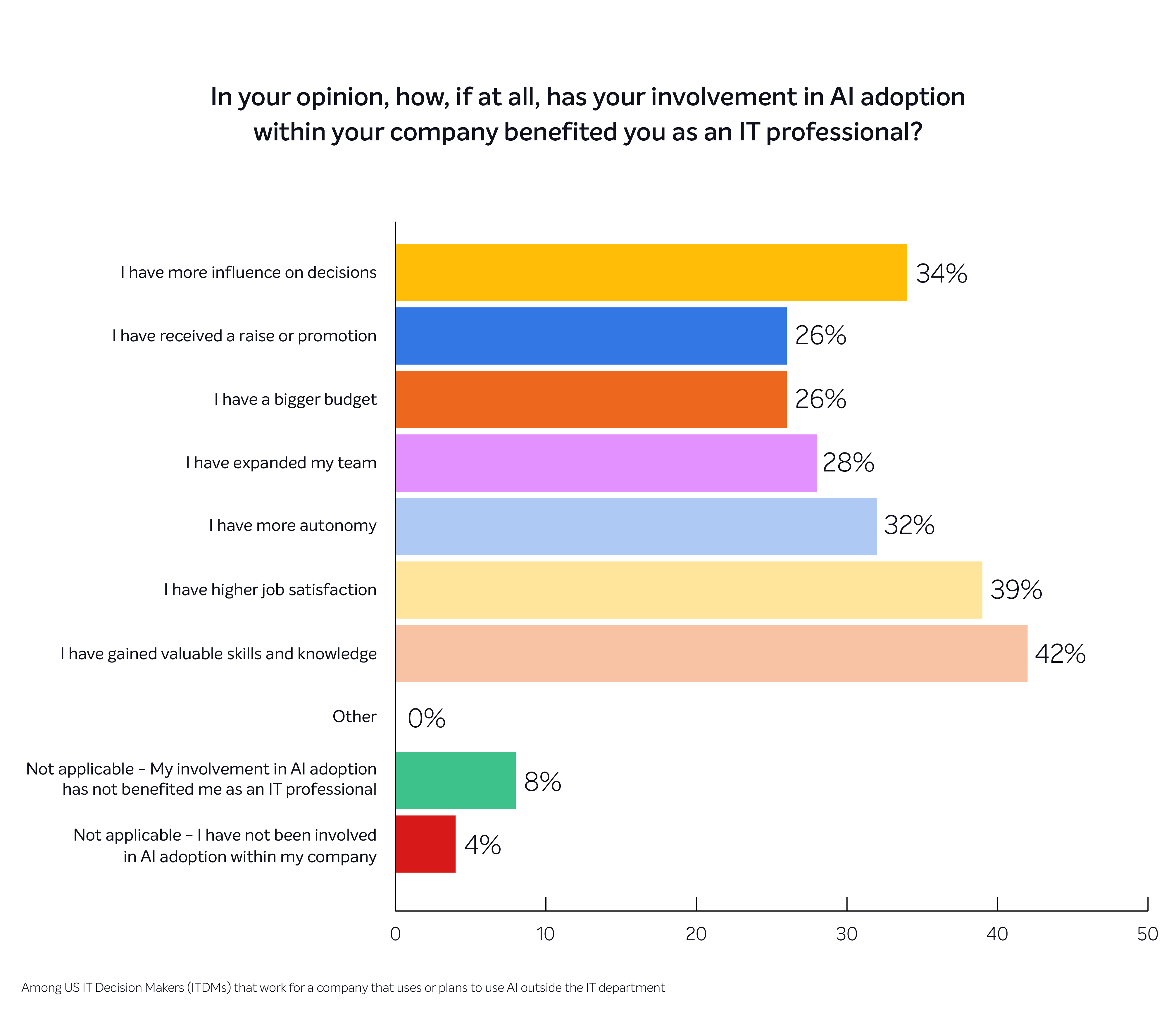
Click on the image to enlarge.
As far as professional power and freedom, 34% say they have more influence on decisions; 32% report more autonomy. Just over 1 in 10 (12%) respondents say they have more influence on decisions and have more autonomy at work. Working in AI must be invigorating to the 39% who enjoy higher job satisfaction, and the 42% who say they've learned valuable skills and knowledge. The link between AI adoption and IT career growth is clear.
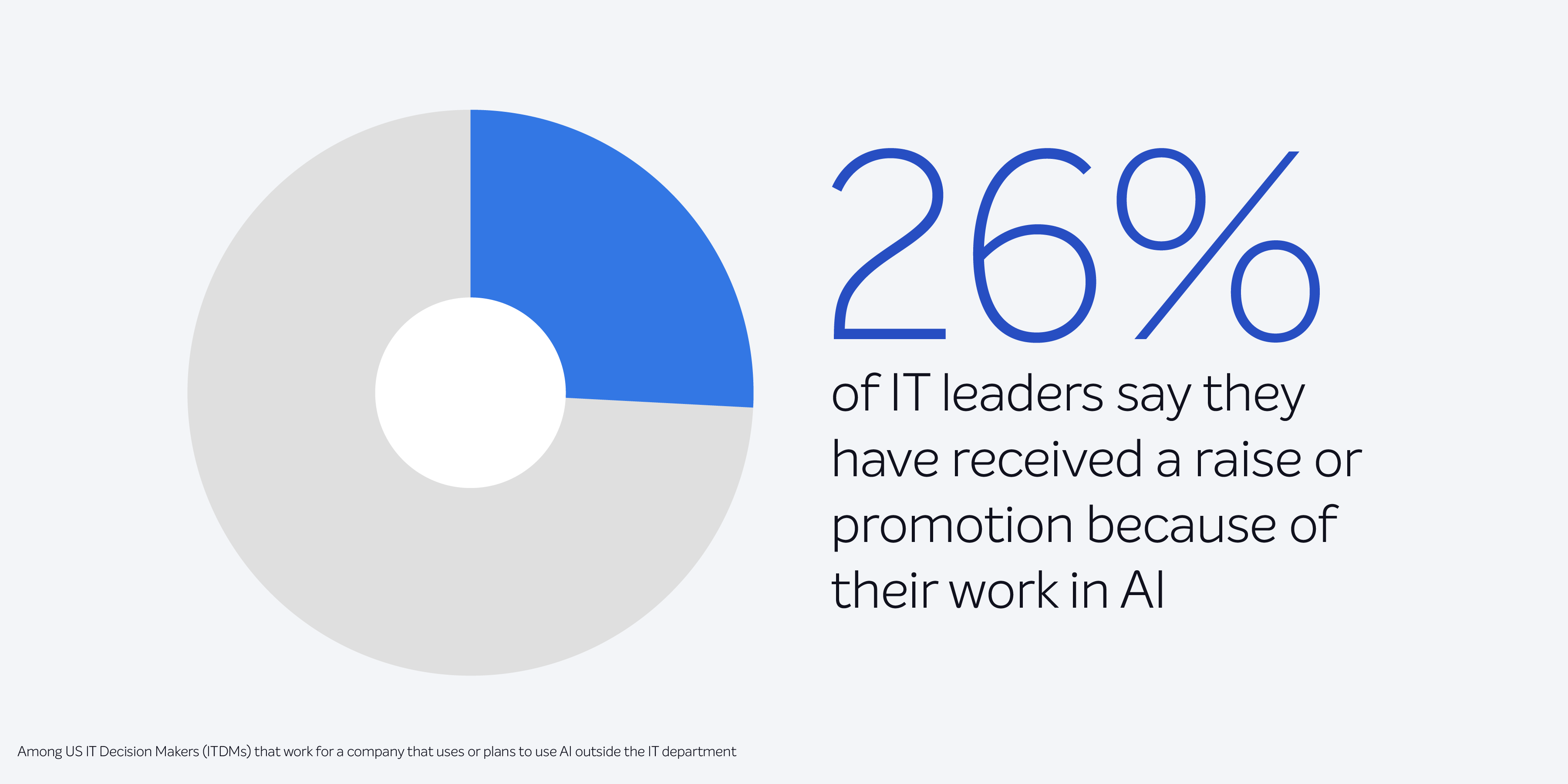
Click on the image to enlarge.
Wrapping up
As IT decision-makers plan, consult on, and implement AI, their crucial contributions shine bright. They are the people with the skills, knowledge, and experience that C-levels need to deliver on the promise of AI. As ITDM responsibilities grow, so do the rewards. From better job satisfaction and more autonomy to higher pay and bigger teams, it's as clear as it is well-deserved: AI is great for IT leaders and their teams.
Methodology
All figures, unless otherwise stated, are from YouGov Plc. Total sample size was 500 US IT Decision Makers. Fieldwork was undertaken between 23rd – 25th September 2024. The survey was carried out online.













